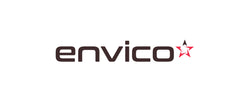Understanding Blockchain Technology
Before diving into the steps, it’s crucial to understand what blockchain technology is. At its core, a blockchain is a decentralized digital ledger that records transactions across many computers. This decentralization ensures that the data is secure, transparent, and immutable. Blockchain is not just about cryptocurrencies; its applications extend to finance, healthcare, logistics, and even voting systems.
1. Learn the Fundamentals of Blockchain
The first step to becoming a blockchain developer is to get a solid grasp of the basics. Understanding how blockchain works, the difference between public and private blockchains, and the role of consensus algorithms is crucial. Start by familiarising yourself with concepts like:
- Distributed Ledger Technology (DLT)
- Cryptographic hashing
- Smart contracts
- Decentralisation
- Consensus mechanisms (Proof of Work, Proof of Stake, etc.)
2. Master Programming Languages
Programming is at the heart of blockchain development. While several languages are used in blockchain projects, mastering the following will give you a strong foundation:
- Solidity: The most popular language for writing smart contracts on the Ethereum blockchain.
- JavaScript: Widely used in blockchain development for creating interactive web interfaces and decentralized applications (DApps).
- Python: Ideal for blockchain analytics, scripting, and developing blockchain platforms.
- C++: Used in Bitcoin development, C++ provides low-level memory control and object-oriented features.
- Go: Popular for building hyper-efficient blockchain platforms due to its simplicity and performance.
3. Understand Smart Contracts
Smart contracts are self-executing contracts with the terms of the agreement directly written into code. They automate transactions, reducing the need for intermediaries. Learning to write, deploy, and interact with smart contracts, especially using Solidity on the Ethereum platform, is crucial for any blockchain developer.
4. Familiarise Yourself with Blockchain Platforms
To become proficient in blockchain development, you need to work with various blockchain platforms. Some of the most popular ones include:
- Ethereum: Known for its robust smart contract functionality, Ethereum is the platform of choice for DApps.
- Hyperledger Fabric: A permissioned blockchain framework suitable for enterprise-level applications.
- Corda: Another permissioned blockchain, designed specifically for financial institutions.
- EOSIO: Known for its scalability and flexibility, EOSIO is ideal for building decentralised applications.
Each platform has its architecture, consensus algorithm, and use cases. Understanding these differences will help you choose the right platform for your project.
5. Gain Hands-on Experience
Theoretical knowledge is important, but practical experience is where you’ll truly learn to navigate the complexities of blockchain development. Start by:
- Building DApps: Create decentralised applications on platforms like Ethereum. Start with simple projects and gradually move to more complex ones.
- Contributing to Open Source Projects: Platforms like GitHub host numerous open-source blockchain projects. Contributing to these will not only build your skills but also expose you to real-world problems and solutions.
- Participating in Hackathons: Blockchain hackathons are a great way to collaborate with other developers, learn new skills, and gain exposure in the blockchain community.
6. Stay Updated with the Latest Trends
Blockchain technology is rapidly evolving. To stay ahead, it’s crucial to keep up with the latest trends, protocols, and industry news. Follow blockchain influencers on social media, subscribe to industry newsletters, and participate in online communities like Reddit and Stack Exchange.
7. Consider Earning a Certification
While not mandatory, earning a blockchain certification can validate your skills and make you more attractive to potential employers. Some popular certifications include:
- Certified Blockchain Developer (CBD)
- Ethereum Developer Certification
- Certified Blockchain Professional (CBP)
These certifications cover various aspects of blockchain technology, including architecture, development, and implementation.
8. Build a Portfolio
A strong portfolio showcasing your blockchain projects is essential. Include your contributions to open-source projects, personal DApps, and any freelance work you’ve done. A well-rounded portfolio not only demonstrates your technical skills but also your ability to solve real-world problems.
9. Network with Industry Professionals
Networking plays a significant role in advancing your career. Attend blockchain conferences, webinars, and meet-ups. Engage with professionals on LinkedIn and participate in online forums. Networking can open doors to job opportunities, collaborations, and mentorship.
10. Apply for Jobs or Freelance
Once you’ve built a strong foundation, it’s time to start applying for blockchain developer positions. Look for job openings at blockchain startups, tech companies, and financial institutions. Alternatively, you can start freelancing, offering your services to clients looking to implement blockchain solutions.
Becoming a blockchain developer requires a combination of theoretical knowledge, practical experience, and a commitment to continuous learning. By following the steps outlined in this guide, you’ll be well on your way to building a successful career in this exciting and rapidly growing field. As the technology evolves, so will the opportunities, making it a rewarding career choice for those willing to stay ahead of the curve.
